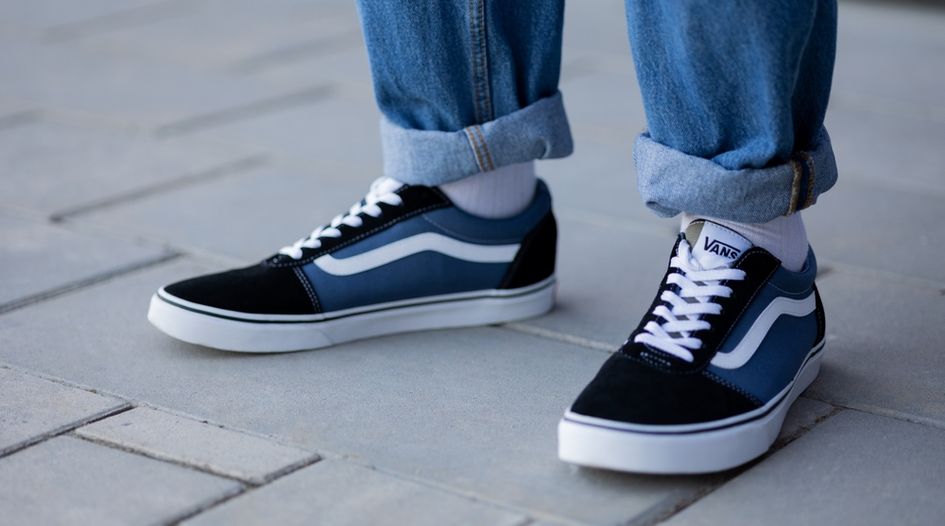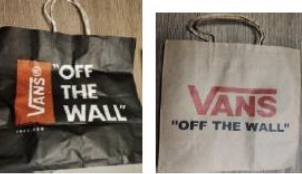Vans cancellation action sheds light on absolute rights of well-known trademark owners

In a suit brought before the Delhi High Court, Vans sought to cancel two trademark registrations held by FCB Garment Tex India in Class 25 – IVANS and IV ANS NXT (registrations 1109073 and 1849768) – on the ground of similarity with its proprietary mark VANS, which is also registered in Class 25 (registration 574910) (Vans Inc USA v FCB Garment Tex India Ltd and Anr, CO/COMM IPD-TM, 161/2021 & IA, 15763/2022).
Case background
Paul Van Doren founded Vans in California in 1966 and it soon became the preferred shoe brand for skateboarders. By 1980, the company had expanded to cover shoes for various sports and later introduced clothing. Vans was launched in India in 2011. It gained tremendous popularity – so much so that VANS was declared a well-known mark in the IP Office’s online Trademark Journal No 2144 on 19 February 2024.
While Vans claimed that there were phonetic, visual and structural similarities between the rival marks, FCB Garment Tex highlighted several differences, including those set out in the table below.
| Trademark | IVANS | VANS |
| Logos |   |  |
| Packaging |  |  |
| Products | Men’s apparel, with no intention of entering the footwear sector. | Famous for footwear. |
| Price | Affordable prices for lower/middle classes, ranging from 400-1200 rupees (US$4-15). | High prices targeting upper classes: shoes upwards of 2,500 rupees (US$30 or more); clothing US$20-160. |
| Sales channels | Small stores in local marketplaces across the country. | Shopping centres or big stores only. |
The dispute and decision
FCB Garment Tex made strong arguments to highlight its prior common law rights. It claimed to have used its marks since 1999, whereas Vans only began to retail its products in India 12 years later. Invoices from 2002 onwards – along with advertisements dating back to 2008 – were tendered by FCB Garment Tex to buttress its claim.
In contrast, the plaintiff’s trademark application to register the word mark VANS – although it was filed earlier than FCB Garment Tex’s applications – had been filed in 1992 on a proposed use basis. The court was urged to consider the first-in-the-market test outlined in Neon Laboratories v Medical Technologies (INSC:728, 2015) under which a delayed user cannot be compensated for merely by the presence of a prior application.
Even assuming that the rival marks were similar, FCB Garment Tex argued that concurrent use would be permitted under Indian trademark law for separate categories of goods. Further, Vans had not opposed FCB Garment Tex’s trademark applications that were filed after its own application, had acquiesced for a long period of time and had only recently obtained well-known trademark status.
The Delhi High Court noted that Vans’ principal and predominant market presence was in footwear and that only its allied goods included apparel. The court contrasted this with Vans’ averment that FCB Garment Tex only dealt with men’s apparel with no intention of expanding into footwear.
On use, the court ruled that since Vans had only launched its products in India in 2011, FCB Garment Tex was in fact a prior user. Reference was also made to the Supreme Court’s decision in Mohideen v Sulochanabai (2 SCC:683, 2016), in which it was held that registration is a mere recognition of the rights pre-existing in common law, and that in case of conflict between two registered proprietors, evaluation of these rights is essential.
Further, no argument for FCB Garment Tex’s bad-faith adoption of the mark could be made out because Vans’ mark was only published in 2005. Therefore, there could be no constructive notice – as contended by Vans’ counsel – because FCB Garment Tex applied for its mark in 2002.
Agreeing with FCB Garment Tex on product differentiation, pricing, market channels and trade dress, and noting that Vans had not opposed any of FCB Garment Tex’s marks or filed for cancellation 16 years after registration, the court ruled out likelihood of confusion or association between the marks.
Court analysis
Significantly, the Delhi High Court held that the recent declaration of the VANS mark as a well-known trademark would not be relevant for the purposes of rectification, since FCB Garment Tex could not suddenly lose rights over a mark that was not liable to be removed for the reasons mentioned above. The implication is that the similarity of two marks is not the sole criteria to win a trademark dispute – a holistic appreciation of facts and circumstances is necessary. The court ruled that declaration of a well-known trademark could not give automatic, unabridged and unmitigated rights to a proprietor to apply for rectification of all the marks that have subsisted on the register for years prior and in different classes.
Key takeaways
Some opine that the court missed an opportunity to specify certain parameters or factors that proprietors of well-known marks should consider when seeking to file cancellation actions. Regardless, the ruling goes far enough to demonstrate that well-known trademark owners may encounter a higher level of scrutiny when seeking rectification and must be able to present strong evidence of confusion, deception and damage to their marks if they are to succeed. In doing so, the court has expertly balanced the broader protection available to well-known marks with the supremacy to be accorded to prior common law and registered rights.
WTR recommends
Vans parody loses out on heightened First Amendment protection in Second Circuit ruling
How to protect well-known marks in Myanmar
Michelin's well-known trademarks protected against use for pet food and pet hospital
This is an Insight article, written by a selected partner as part of WTR's co-published content. Read more on Insight
Copyright © Law Business ResearchCompany Number: 03281866 VAT: GB 160 7529 10